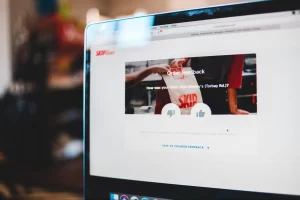7 Ways to Integrate Sustainable Practices into Your Business Without Sacrificing Financial Performance
In the quest for sustainability that aligns with fiscal responsibility, we’ve gathered insights from CEOs and founders on their innovative strategies. From eliminating food waste to adopting a paperless approach, explore the seven powerful examples these leaders have shared about integrating sustainable practices without sacrificing financial performance.
- Eliminate Food Waste and Give Back
- Invest in Energy-Efficient Office Technologies
- Use Eco-Friendly Initiatives and Training
- Furnish with Upcycled Office Decor
- Implement Circular-Economy Packaging Model
- Monetize Leads with Sustainable Focus
- Adopt a Paperless Approach
Eliminate Food Waste and Give Back
As co-founders of a catering company, we are conscious of reducing the environmental impact of the weddings and parties we serve. One simple area in which we can help is by helping to eliminate food waste. When we clean up after an event, the first thing we do with leftover food is give our employees a chance to take some home.
After that, we donate the remaining leftovers to community fridges. This is a great way to boost the sustainability of our events while also giving back to our community, and it does not have any negative financial impact on our business.
 Brandon Blackwell
Brandon Blackwell
Co-Founder, Elysian Events Catering
Invest in Energy-Efficient Office Technologies
Integrating sustainable practices into business operations is crucial for the environment and can also benefit financial performance in the long run. One example of how I’ve done this is by implementing energy-efficient technologies in my office space.
By investing in LED lighting, motion sensors, and smart thermostats, I was able to reduce energy consumption without compromising comfort or productivity. This not only resulted in significant cost savings on utility bills but also positioned my business as environmentally conscious, attracting like-minded clients who valued sustainability.
 Kevin Shahbazi
Kevin Shahbazi
CEO & Co-Founder, LogMeOnce
Use Eco-Friendly Initiatives and Training
Successfully intertwining sustainable practices with robust financial performance, our company has strategically incorporated eco-friendly initiatives into its operational framework. The adoption of energy-efficient technologies and meticulous optimization of our supply chain have resulted in a substantial reduction of our carbon footprint.
Committed to responsible waste management, we actively engage in recycling and composting, thereby minimizing our overall environmental impact. Moreover, our dedication to sustainability extends to employee engagement, with tailored training programs fostering awareness and encouraging eco-friendly behavior throughout our organization. Beyond the positive environmental impact, these initiatives have translated into tangible cost savings, driven by reduced energy consumption and enhanced resource efficiency.
Demonstrating that sustainability and financial success are not mutually exclusive, our company stands as a testament to the harmonious coexistence of responsible business practices and economic prosperity.
 Adrian Pereira
Adrian Pereira
Co-Founder, Eco Pea Co.
Furnish with Upcycled Office Decor
In our journey towards chakra healing, sustainability has been a cornerstone. A personal instance that stands out is our choice to furnish the office exclusively with upcycled furniture. Initially, the idea seemed daunting, considering the financial implications.
However, by collaborating with local artisans, we transformed pre-loved items into unique, functional pieces that embody our ethos. This decision reduced our carbon footprint and aligned perfectly with our principles of renewal and balance, central to chakra healing.
Financially, it was a win-win, saving costs while adding a unique charm to our workspace, much appreciated by clients and team members alike.
 Clare Gilbey
Clare Gilbey
Founder, Chakra Practice
Implement Circular-Economy Packaging Model
Integrating sustainable practices involved adopting a circular-economy model for product packaging. Instead of the traditional linear approach, we implemented a system where packaging materials are reused, recycled, or repurposed. This initiative aligns with our commitment to environmental responsibility and positively impacts our bottom line.
By utilizing eco-friendly materials and designing packaging with a focus on recyclability, we’ve reduced our carbon footprint and also benefited financially. The shift toward sustainable packaging has resonated with environmentally conscious consumers, resulting in increased brand loyalty and positive word-of-mouth.
Furthermore, optimizing packaging materials has reduced costs in the long run, contributing to improved financial performance while actively supporting our commitment to sustainability. This shows that environmentally conscious practices can be economically viable, fostering ecological and financial sustainability.
 Dhari Alabdulhadi
Dhari Alabdulhadi
CTO and Founder, Ubuy Kuwait
Monetize Leads with Sustainable Focus
One example of how we’ve integrated sustainable practices into our business operations without compromising financial performance is through the way we monetize our leads. We are typically looking for opportunities to buy properties at a discount from market value to be able to either flip the property or sell it to another investor for a wholesale fee.
What I realized over time is that 90% of our leads were not willing to take a cash offer and instead would end up going with a real estate agent. Oftentimes, we would find ourselves trying to convince these sellers to work with us or locking up thin deals that truly did not make much sense.
Over time, I saw that there would be a way for us to monetize these leads by referring them to other real estate agents for a marketing fee. By being able to monetize every kind of lead, we could equally place our focus and attention on every lead, rather than only focusing on the ones that we could flip or make a wholesale fee on.
This was a massive pivot in our business, as we were able to start operating from what was best for the seller rather than what was best for us, as we were okay with all outcomes.
 Sebastian Jania
Sebastian Jania
CEO, Ontario Property Buyers
Adopt a Paperless Approach
One notable example of how we’ve integrated sustainable practices into our operations is through our office infrastructure. We’ve implemented energy-efficient technologies, such as motion-sensor lighting and smart climate control systems, to reduce our overall energy consumption. Not only does this contribute to a smaller carbon footprint, but it also translates into substantial cost savings for us in the long run.
Furthermore, we’ve adopted a paperless approach in our daily operations, encouraging digital communication and document sharing. This not only aligns with our commitment to environmental responsibility but also streamlines our processes, enhancing efficiency and reducing the need for physical resources.
 Jon Morgan
Jon Morgan
CEO, Venture Smarter
Submit Your Answer
Would you like to submit an alternate answer to the question, “Share an example of how you’ve integrated sustainable practices into your business operations without compromising financial performance.”







































